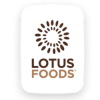As he watched trading begin on Friday morning for Vital Farms, the pasture-raised egg company's CEO Russell Diez-Canseco said the day one success of its initial public offering was a fun distraction — and a reminder of the work that lies ahead.
Vital Farms, which has the NASDAQ ticker symbol VITL, closed its first day of trading up nearly 60%, with stock selling at $35, up from its initial price of $22. The company raised $205 million, offering 9.3 million shares for trading on Friday. Vital Farms increased its share price — initially projected at $15 to $17 per share — in the days before trading began. As of Monday morning, the company's market cap was $1.38 billion.
In a telephone conversation with Food Dive about an hour after trading started, Diez-Canseco said going public is central to Vital Farms' commitment to conscious capitalism.
"We believe that to build an enduring brand and company for the long haul, we've really got to deliver on our commitments to all of our stakeholders," Diez-Canseco said. "And we believe that our ability to continue doing that is actually best served by maintaining our independence. So becoming a public company gives us access to capital to support our continued growth while also giving us the freedom to keep doing and being the change we want to see in the food system."
Vital Farms was founded in 2007 by Matthew O’Hayer and his wife Catherine, who had a small flock of hens on 27 acres in Austin, Texas. They believed a varied diet and better animal welfare practices would lead to superior eggs.
"Becoming a public company gives us access to capital to support our continued growth while also giving us the freedom to keep doing and being the change we want to see in the food system."

Russell Diez-Canseco
CEO, Vital Farms
Today, according to the S-1 form it filed with the U.S. Securities and Exchange Commission, the company works with 200 small family farms across the nation. It has the capabilities of packing 3 million eggs daily, and its products are sold in more than 13,000 stores nationwide, including those owned by Albertsons, Kroger, Publix, Target and Walmart. The company posted sales of $140.7 million in 2019, with net income of $3.3 million. It now offers 20 different SKUs in stores, including eggs and pasture-raised ghee and butter.
Vital Farms is a Certified B Corporation, a coveted certification that shows the business holds the highest ethical values, considering all stakeholders including suppliers, consumers and the environment in its decision making. It's also a public benefit corporation, meaning its commitment to the world community at large is enshrined in its charter. Diez-Canseco said these certifications are important ways to show the world the company stands behind its mission.
Prior to the IPO, Vital Farms raised a total of $40.9 million in six rounds, according to Crunchbase. Diez-Canseco said the company had been working with advisers on preparing for the IPO since last fall. Even though there may be some uncertainty in the economy because of the slowdown from the pandemic, Diez-Canseco said the company went through with its IPO because the story of its founders and mission would resonate with the markets.
Although Vital Farms has a relatively low market penetration — its pasture-raised shell eggs are in just 2% of households, compared to the shell egg category penetration of approximately 93%, according to its filing with the SEC — the company touts this growth potential in its filing. Diez-Canseco said the cash infusion with the IPO will help expand that through greater marketing capabilities.
When consumers know what Vital Farms stands for, he said, they will be more likely to want to purchase its products. The IPO's funds will also help Vital Farms expand its Egg Central Station, its Springfield, Missouri-based egg sorting and packaging facility, which has the highest food safety certifications available.

But while most homes in the United States consume eggs, they are still a volatile commodity. At the beginning of the stay-at-home orders associated with the coronavirus pandemic, the egg market saw consumer shortages and steep retail price increases. Diez-Canseco said because Vital Farms' eggs are specialized, they were more insulated from the impact of the pandemic, and will be insulated from future market upheaval. As the price of conventionally produced shell egg prices as much as tripled on grocery store shelves this spring, Vital Farms' prices stayed the same, Diez-Canseco said.
Consumers have been willing to pay for the quality and story behind Vital Farms, and Diez-Canseco is confident they will continue to do so, even in a recession. He also thinks investors will continue to support Vital Farms. The only other large publicly traded egg company is Cal-Maine, which is the nation's largest egg producer. It produces a mix of conventional and specialty eggs, and its earnings reports and trading prices highlight the volatility in the egg market.
Even though Vital Farms and Cal-Maine are both in the egg business, they don't have much in common beyond that, Diez-Canseco said.
"We created meaningful differentiation in the decisions we make on behalf of all of our stakeholders, and the result is a real brand that's really driven by our mission and our values," he said. "I think that gives us permission and creates the kind of demand and following that that will allow us to chart our own path and not really be compared to or be beholden to anyone else's performance in space."





















